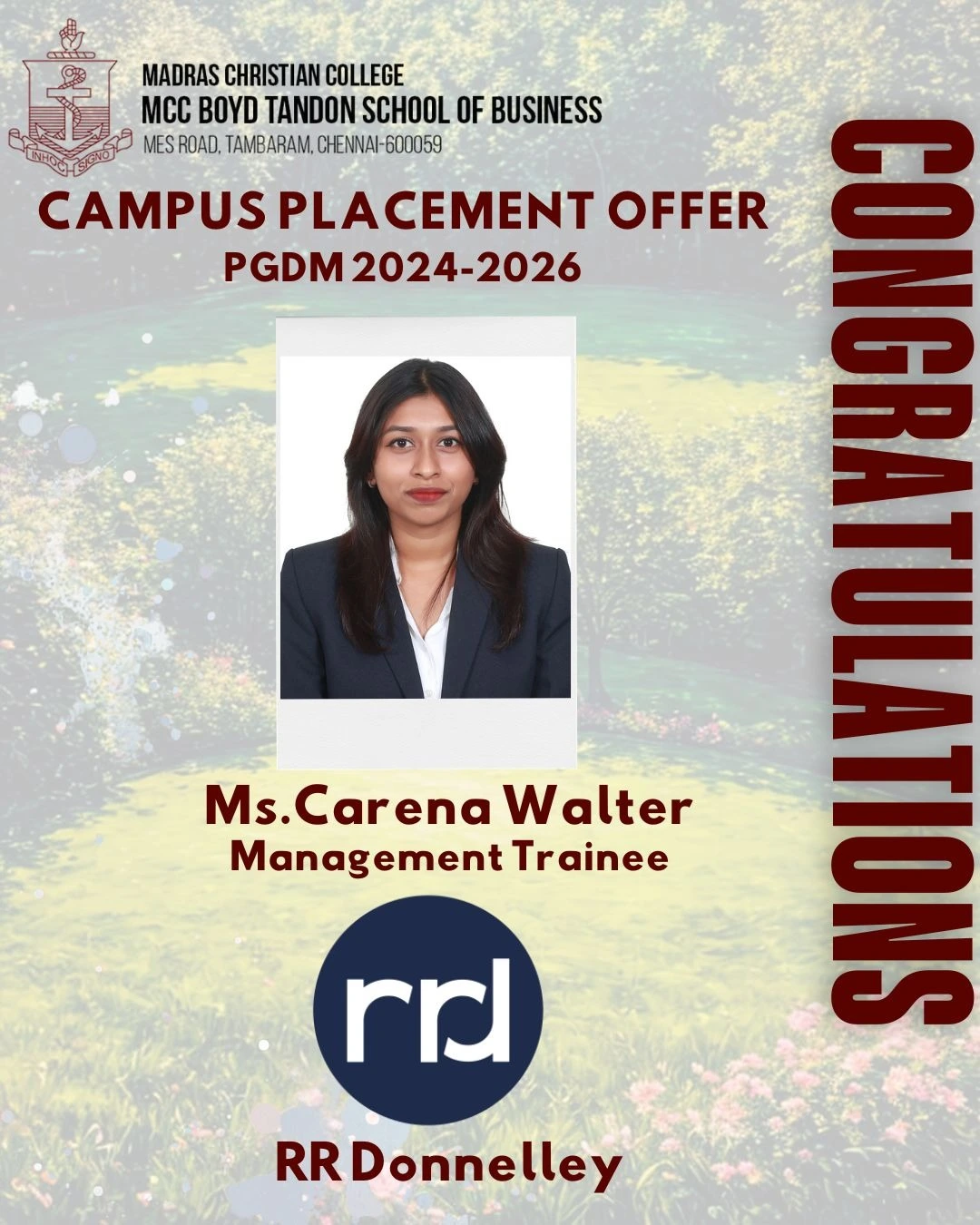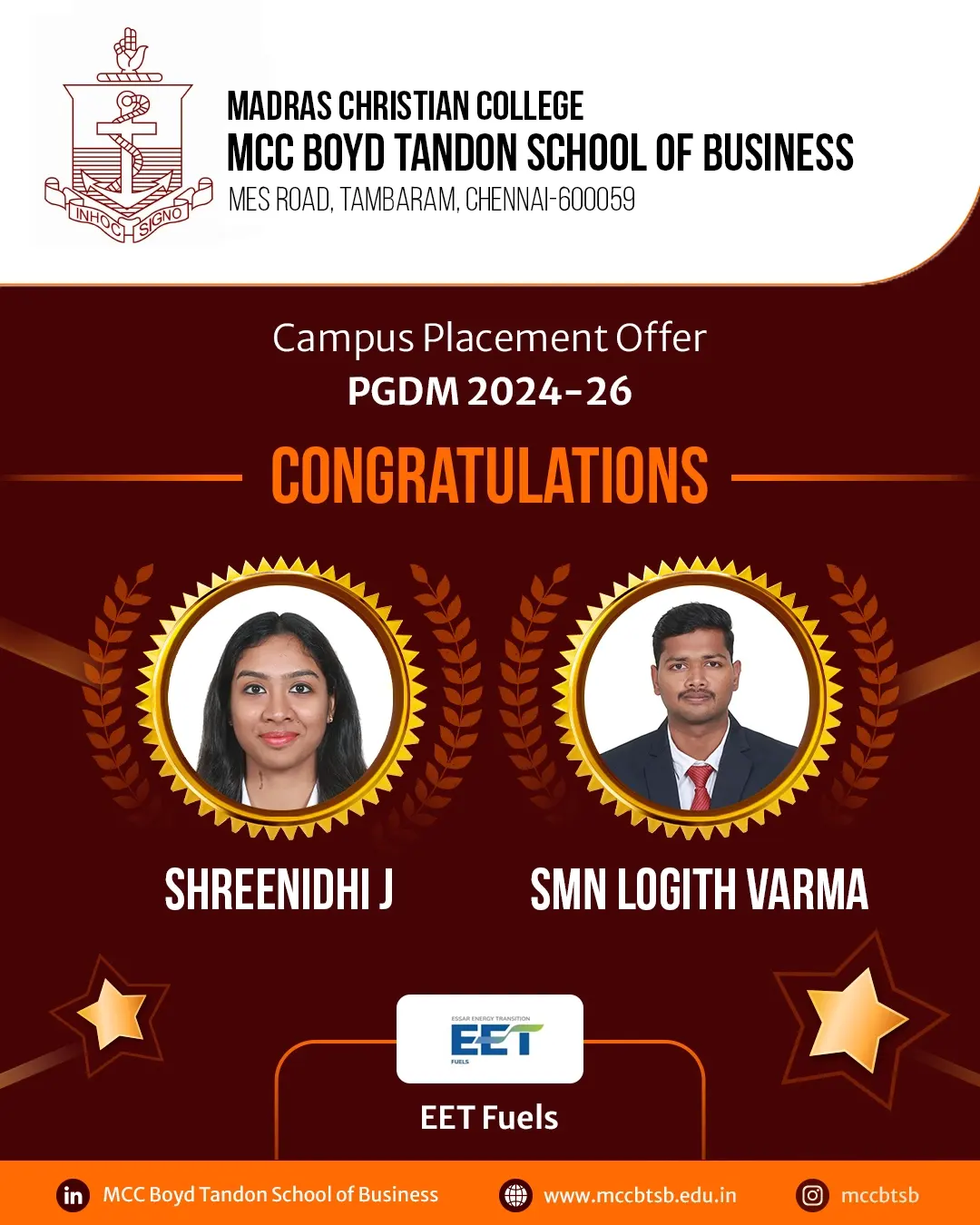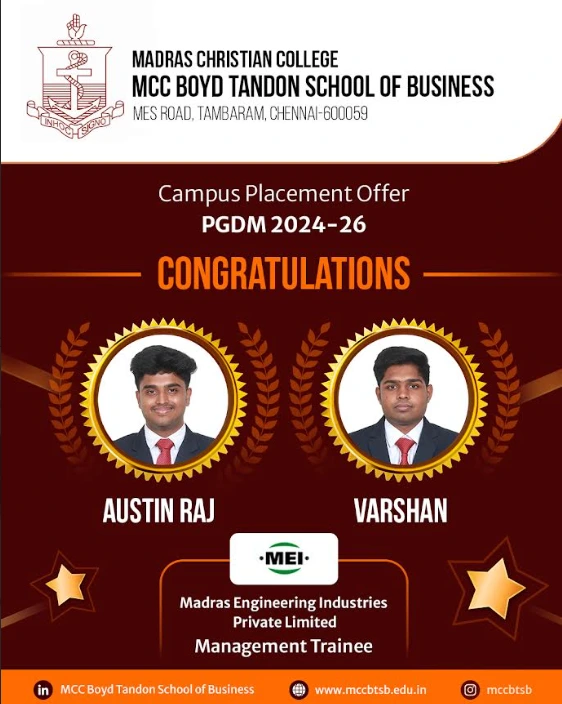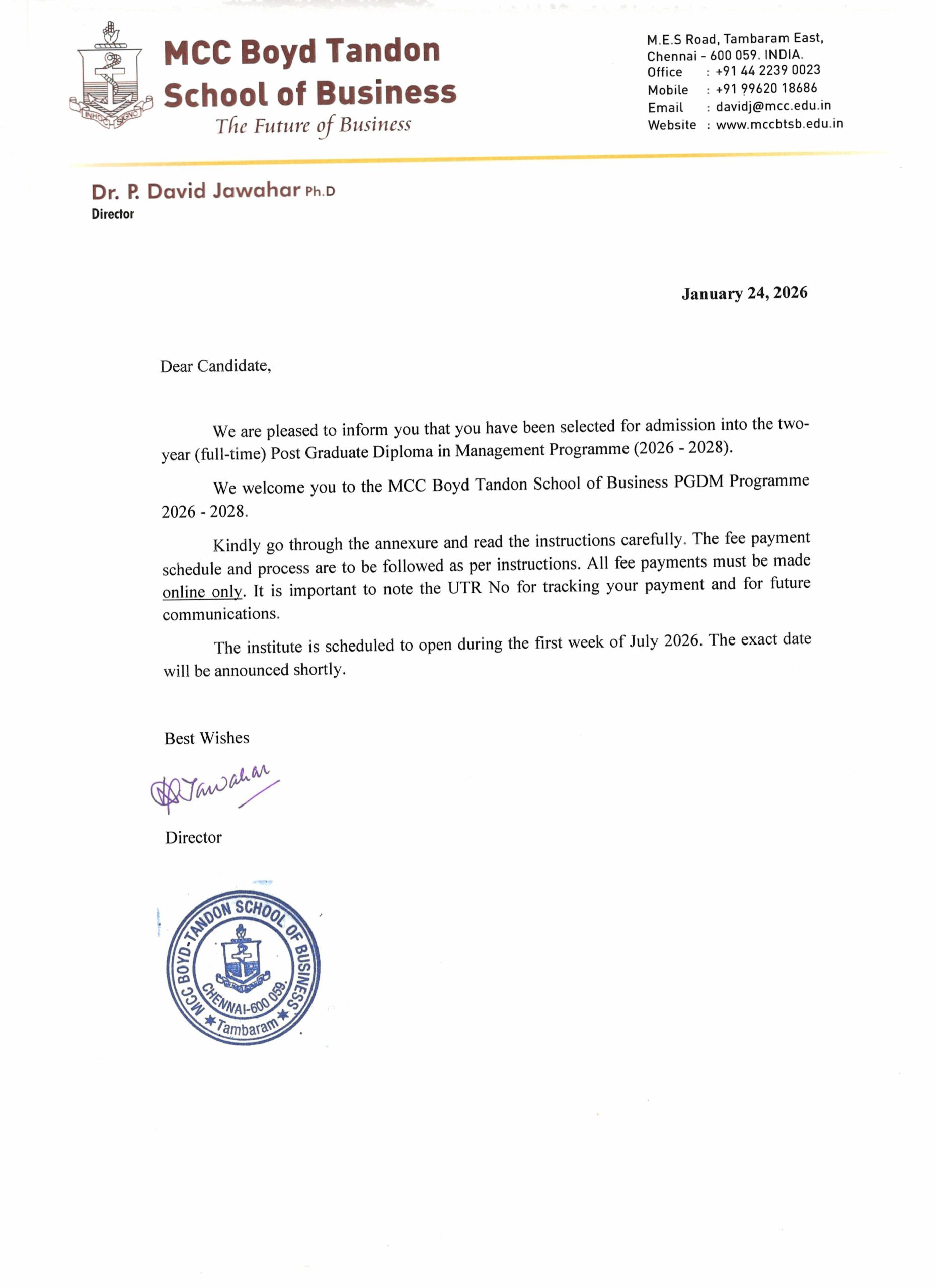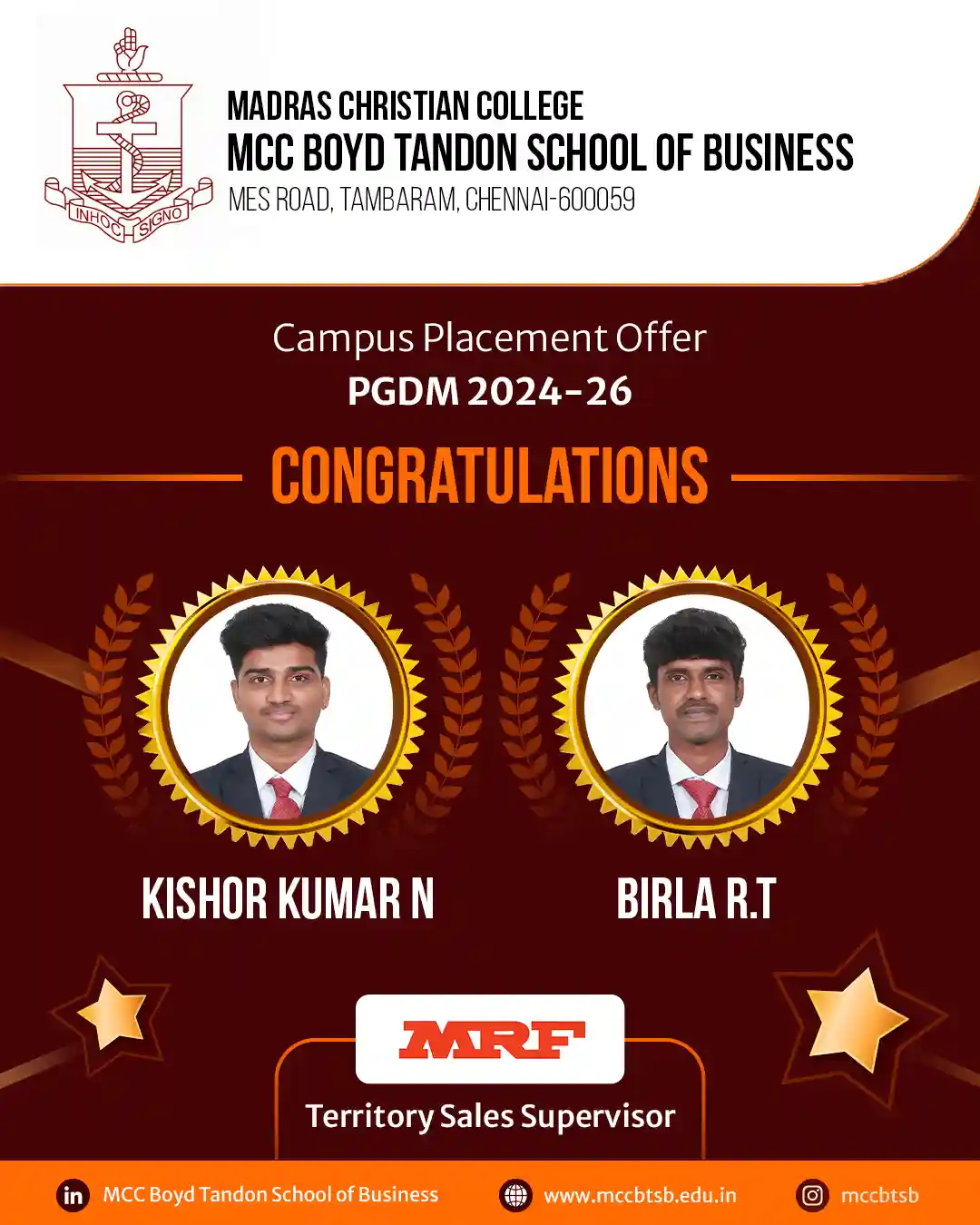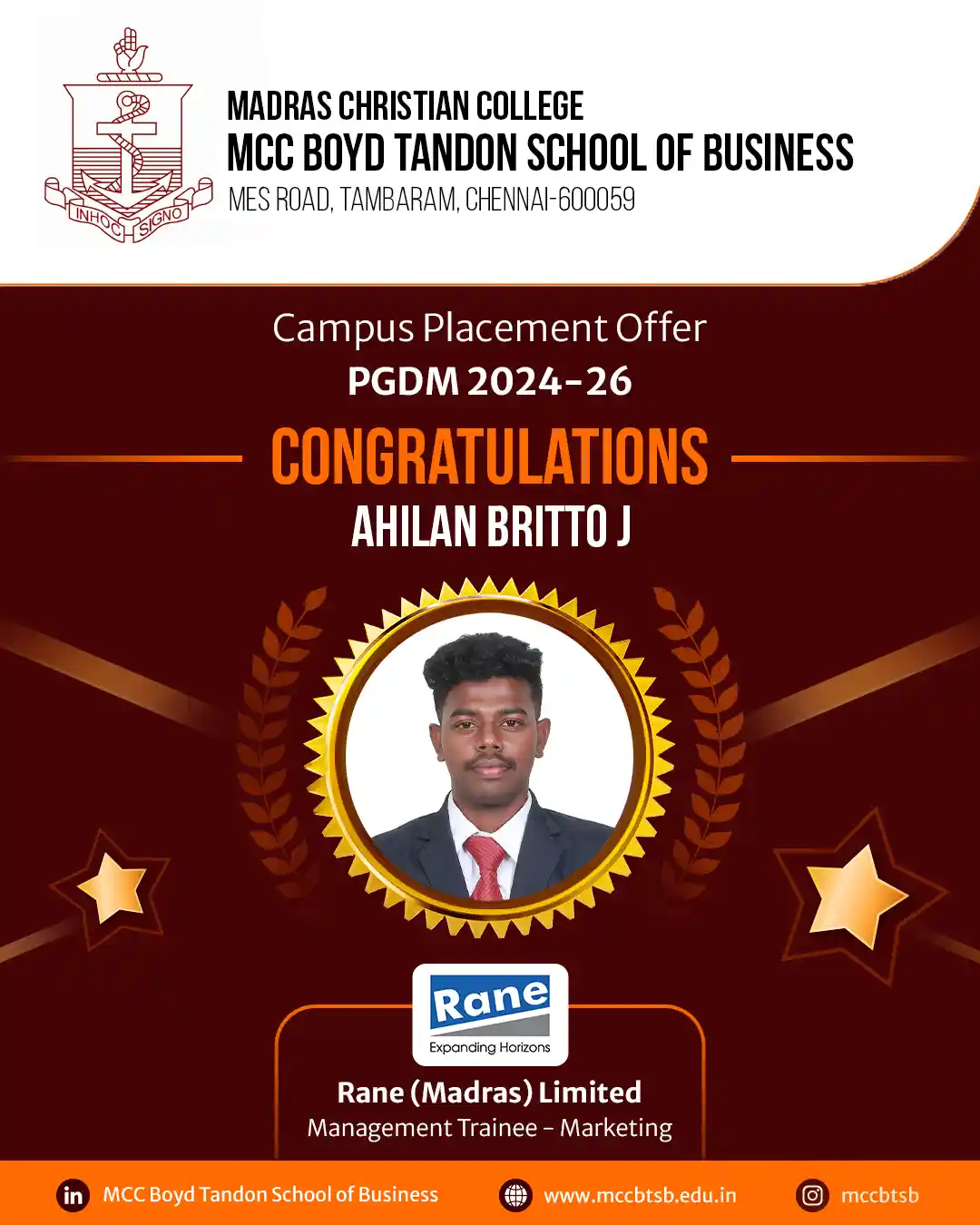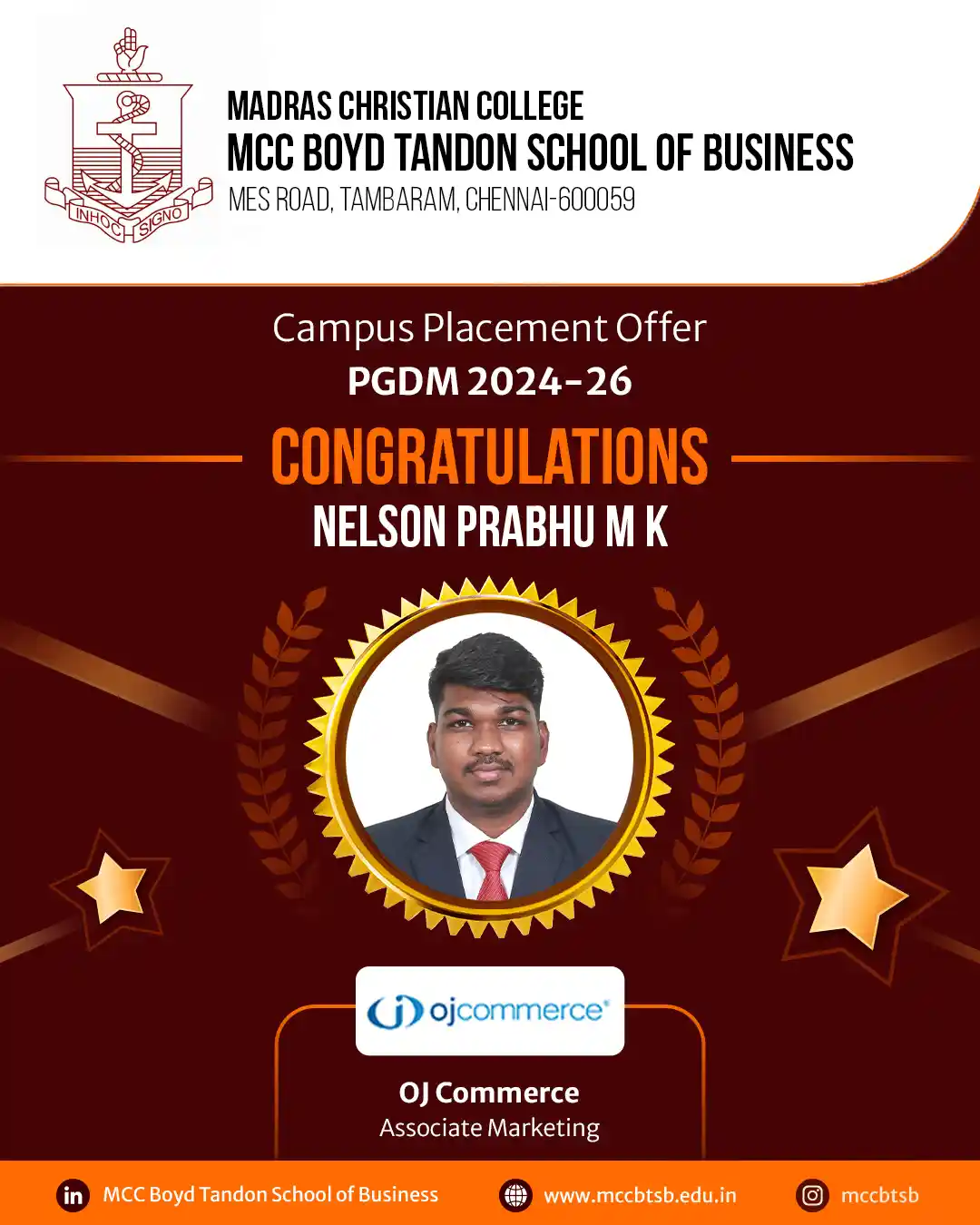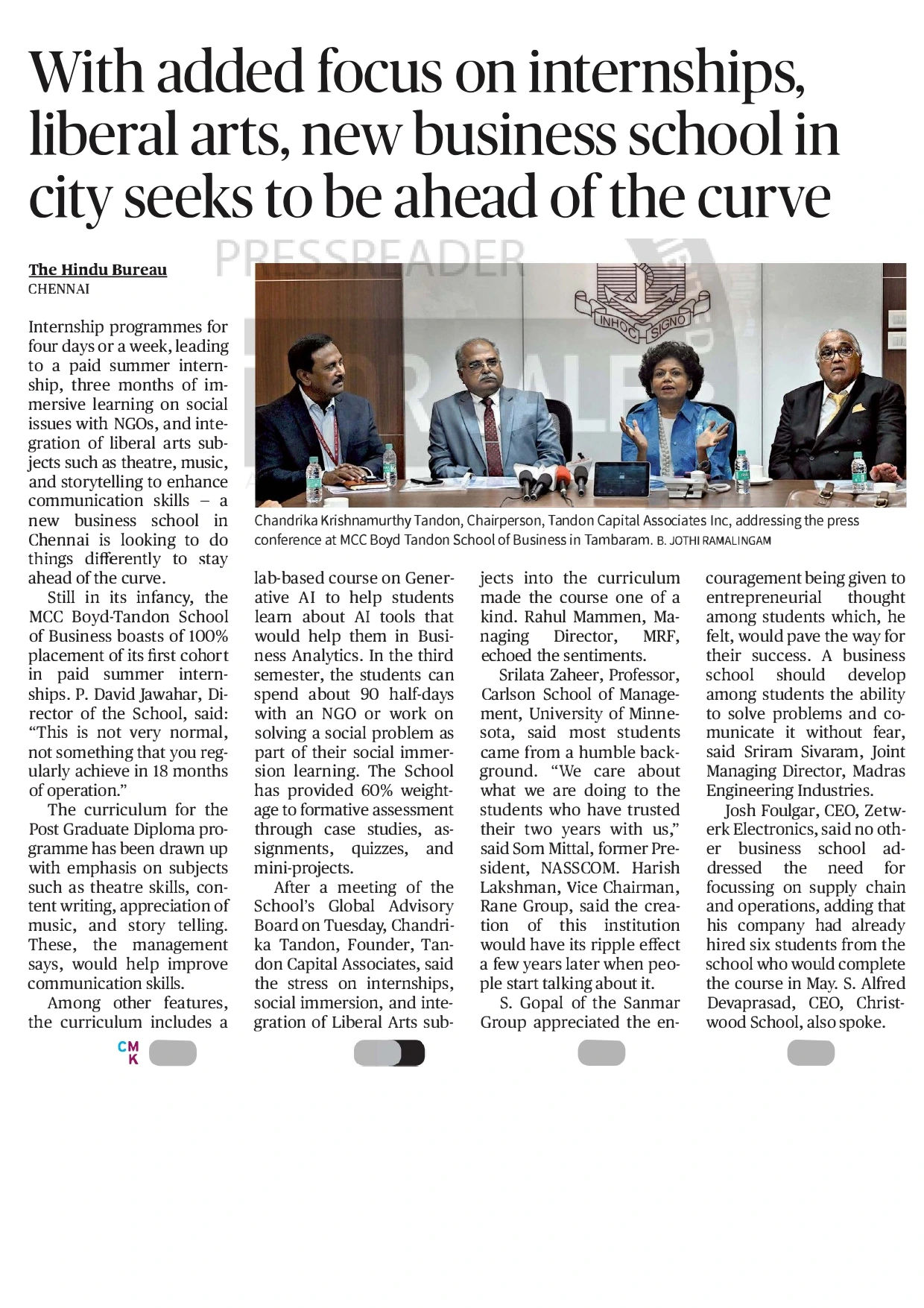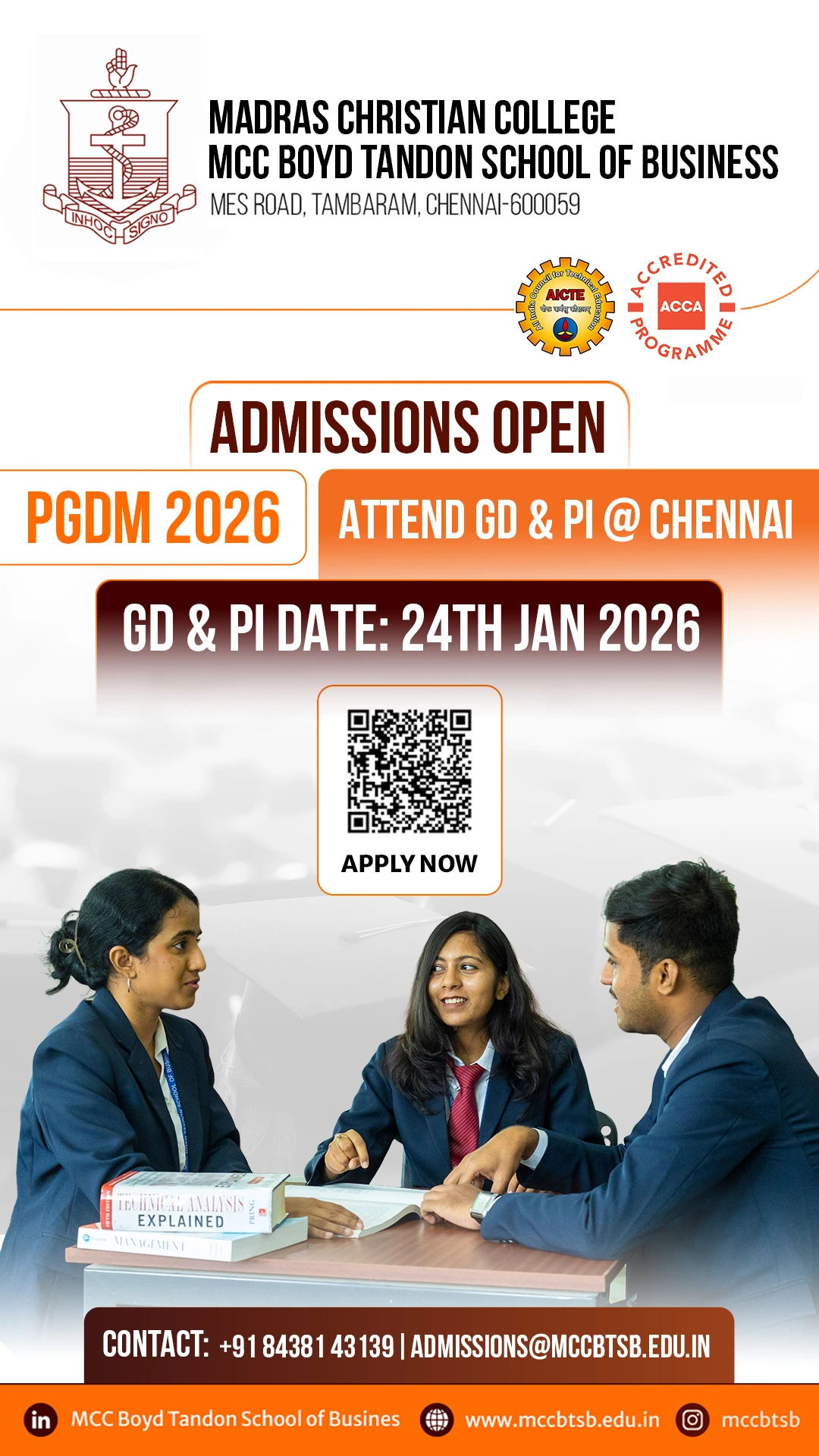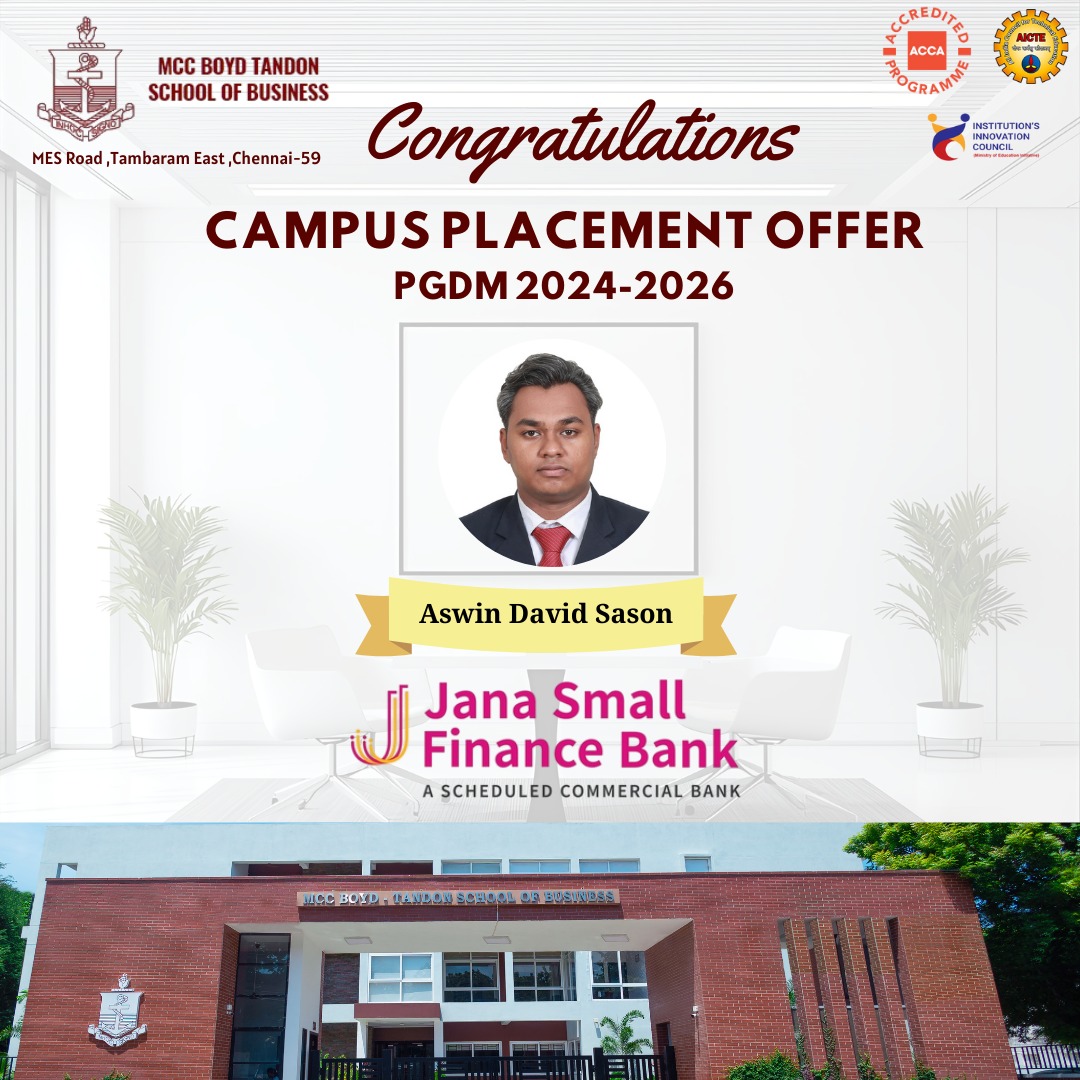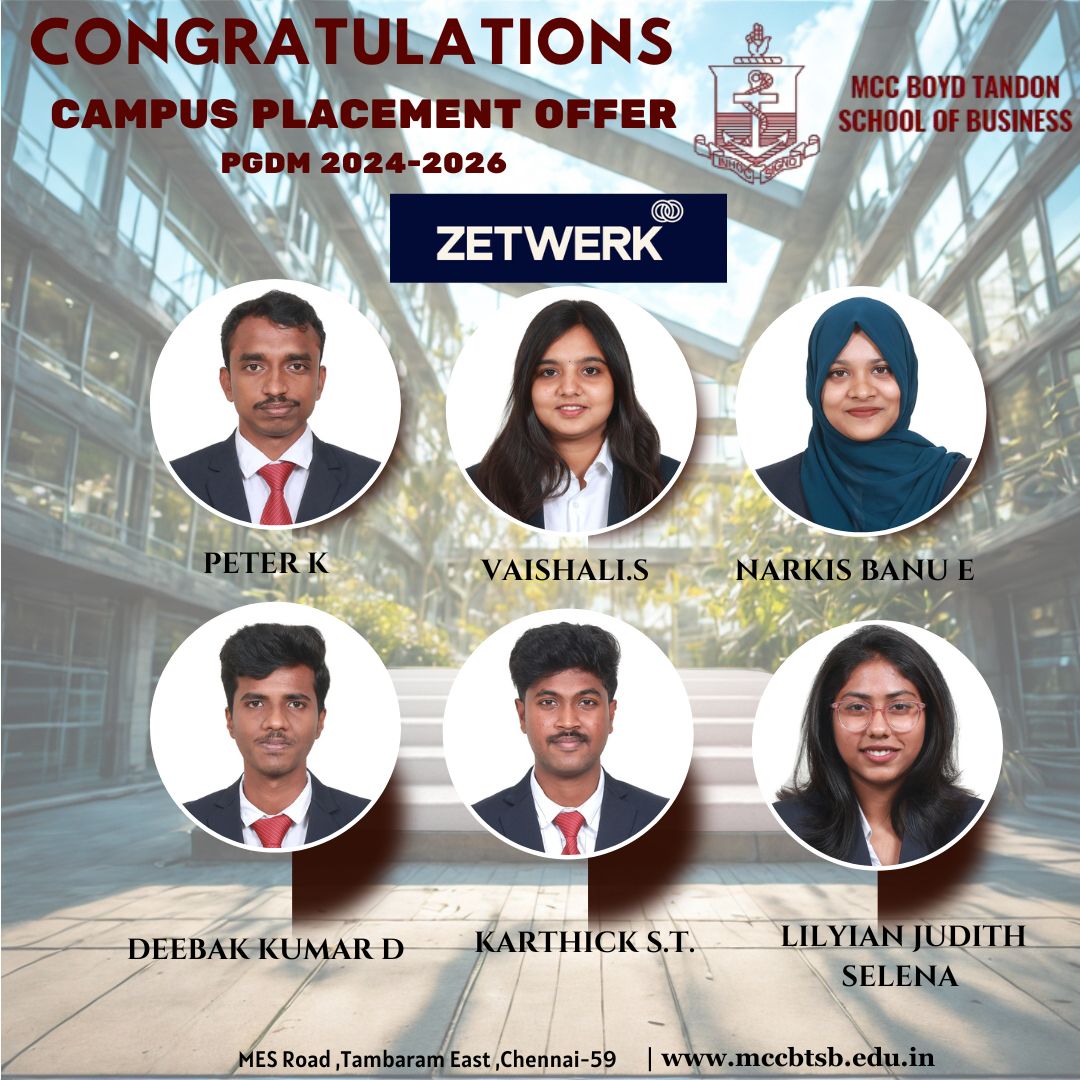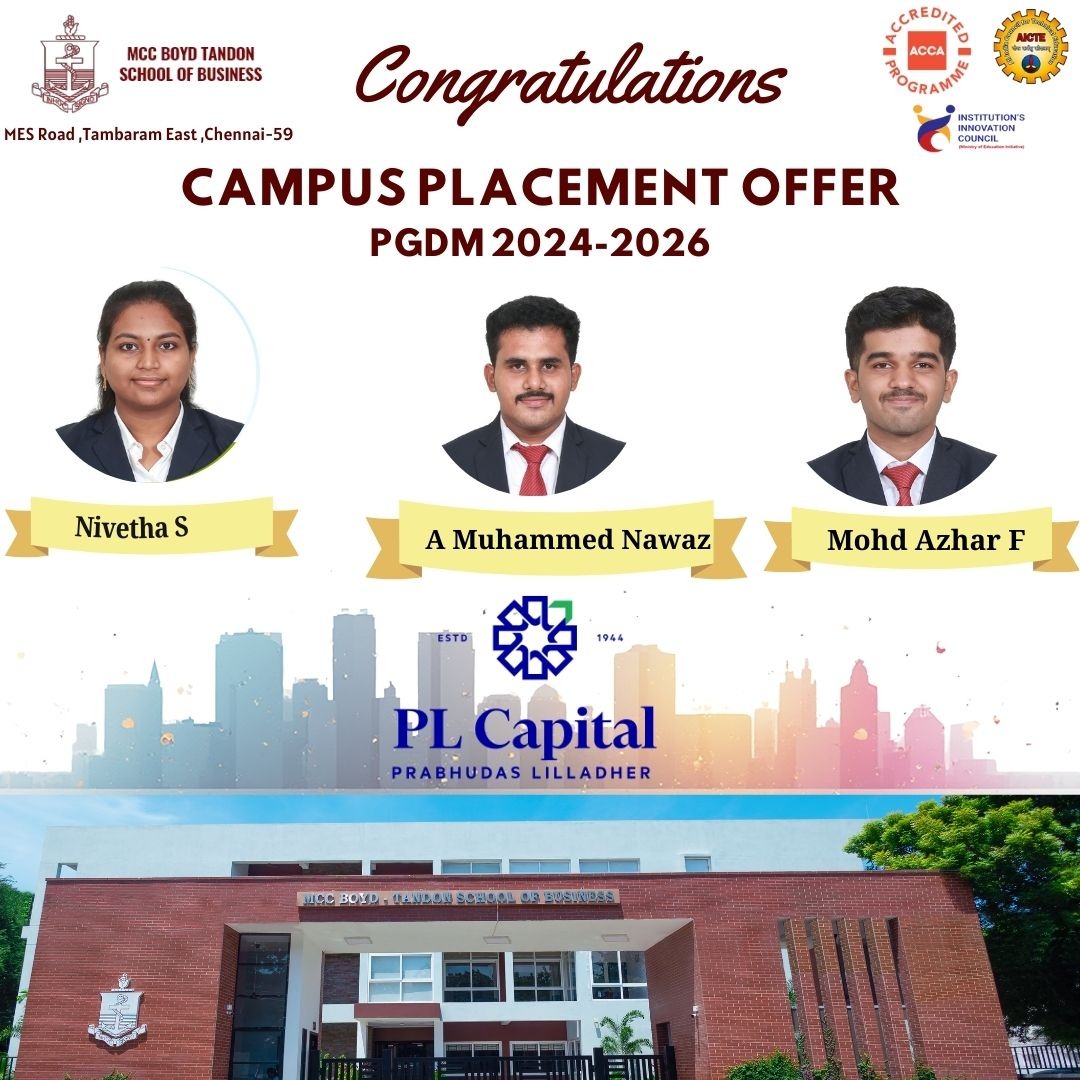Post Graduate Diploma in Management
Programme Overview
MCC BTSBs Post Graduate Diploma in Management Programme of study is approved by All India Council for Technical Education, New Delhi, an apex regulatory body under the Ministry of Human Resources Development, Government of India. The PGDM is a two years full-time programme, spread across six trimesters.
The PGDM programme at MCC Boyd Tandon School of Business provides a dynamic and tailored learning journey. The Curriculum is anchored in an action learning approach empowering every student to take ownership of their education and career development.
Duration: 2 Years | 6 Trimesters
Mode: Full-time, On-Campus
Application Deadline: March 2026
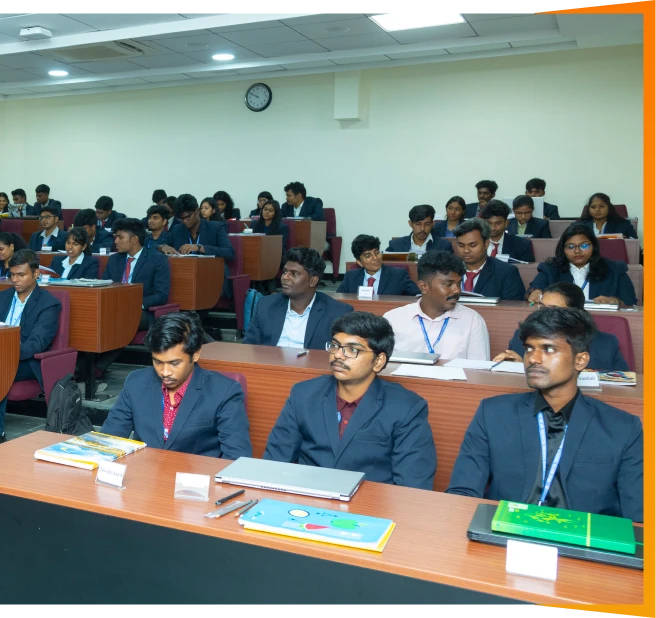
Academic Experience
New Age Curriculum (AI & Analytics)
MCC Brand credibility in the Higher Education Space
Corporate and Social Immersions
Job Opportunities (Great ROI)
Eminent Advisory Council
Global Faculty & Affiliations
Dynamic Pedagogy
ADMissions
Eligibility Criteria
- Bachelor's degree in any discipline with minimum 50% aggregate marks
- Valid XAT ,CAT ,MAT ,TANCET ,ATMA,CMAT score (minimum percentile requirements apply)
- Work experience preferred but not mandatory
- Proficiency in English (written and spoken)
Selection Process
How to Apply
Curriculum
Trimester 1
- Business, Governance and Society
- Microeconomics
- Financial Statement Analysis and Reporting
- Individual and Group Dynamics
- Quantitative Techniques for Managers
- Managerial Communication
- Tools for Managerial Decision Making (L)
- Generic Elective – I
Trimester 2
- Macroeconomics
- Behaviour in the Organizational Context
- Cost and Managerial Accounting
- Marketing Management – I
- Business Analytics (L)
- Generic Elective-II
- Entrepreneurship and Venture Creation
- Master Class -I (L)
Trimester 3
- Fundamentals of Information Security Management
- Supply Chain and Logistics Management
- Corporate Finance
- Human Resource Management
- Marketing Management – II
- Operations Research
- Production and Operations Management
- Data Science Tools (L)
- Master Class - II (L)
- Social Immersion
Trimester 4
- Strategic Management
- Elective I *
- Elective II
- Elective III
- Generic Elective – III (Liberal Arts)
- Foreign Language – I **
- Master Class – III (L)
- Summer Internship (8 -10 Weeks)
Trimester 5
- Technology Enabled Business Management
- Elective I*
- Elective II
- Elective III
- Generic Elective – IV (Liberal Arts)
- Foreign Language – II **
- Master Class – IV (L)
Trimester 6
- Leadership and Team Skills
- Elective I*
- Elective II
- Elective III
- Generic Elective – V (Liberal Arts)
- Capstone Project (Viva)
Fees & Scholarships
Programme Fees
Complete investment for 2-year programme
Tuition Fee (Annual)
₹12,00,000
Other Charges
₹50,000
Total (2 Years)
₹12,50,000
* A Global Immersion Fee will be optional and may be included at the beginning of the total programme cost.
Scholarships Available
Financial assistance for deserving students amounting to INR 50 lakhs through various Scholarship and Fee Concession schemes
Academic Excellence Scholarship & Fee Concessions
- For Entrance Exam Toppers
- For College / University Toppers
- For Special Accomplishments
- For Economically Weaker Section
- For Missionary Wards
Up to ₹15,00,000
Special Scholarship and Fee Concessions
- For MCC Alumni and AIACHE Alumni
Up to ₹35,00,000
Student Stories
MCC BTSB’s PGDM programme empowers students with industry exposure and the skills to thrive professionally.
“The internship opportunity from my PGDM programme has given me practical experiences in the financial processes, and improved my corporate etiquette.”
JJ
Jerusha J
PGDM 2024-26
Ashok Leyland
“My PGDM internship offered real-world banking experience, where I learned to analyze CIBIL reports and gained valuable insights into financial processes.”
EL
Esaklin Lovely Kaviya
PGDM 2024-26
Axis Bank
“Interning through the PGDM programme helped me gain valuable exposure to export documentation, data validation, and corporate processes.”
PS
Poornakala S
PGDM 2024-26
Ashok Leyland
Events & news
Stay updated with our upcoming events and latest news from the campus.
Events
PGDM Admissions Webinar
June 05, 2024 6:00 PM IST
Learn about our program structure, admission process, and interact with faculty and current students.
Learn MoreEvents
PGDM Admissions Webinar
June 05, 2024 6:00 PM IST
Learn about our program structure, admission process, and interact with faculty and current students.
Learn MoreEvents
PGDM Admissions Webinar
June 05, 2024 6:00 PM IST
Learn about our program structure, admission process, and interact with faculty and current students.
Learn MoreFrequently Asked Questions
Find answers to common questions about our PGDM programme.
How do I apply for admission to MCC BTSB?
The Online application form is available in our website mccbtsb.edu.in and online
platforms like LinkedIn,Instagram and Facebook
What is the course being offered at MCC BTSB?
PGDM (Post Graduate Diploma in Management) two-year full time and approved by AICTE.
We offer specializations in HRM, Marketing, Finance, (with Fin Tech) Logistics & Supply Chain Management, Operations, and Business Analytics (with Information Security Management).
Is the course equivalent to an MBA course?
Is the programme approved and recognized by the Government of India?
It is approved by the AICTE (All India Council for Technical Education), New Delhi, under the MOE (Ministry of Education) / MHRD.
Is it affiliated with any University?
It’s a stand-alone ‘B’ School. We are not required to be affiliated with any university.
Are there any opportunities for internships and industry exposure?
Yes. Summer Internships and Social Immersion programme are an integral part of the programme.
What about the placements?
MCC BTSB will provide the greatest opportunities possible to every student in terms of final placements. Because of our industry linkages and MCC alumni support, we aim to achieve exemplary placements with a focus on ROI (Return on Investment).
How experienced is the faculty at MCC BTSB?
What is the fee structure of this course?
The Tuition Fee for the PGDM programme is Rs 12 Lakhs (for two years). Payable in five installments.
Do you provide hostels for the students?
Yes. We provide hostels at MCC Campus. Students who hail from outside Chennai and other states will be given preference. However, the hostel fee will have to be paid in addition to the tuition fee.
Can we get an education loan?
Yes. It is an AICTE approved programme and therefore eligible for education loan from banks.
Contact
Send us a message
Working Hours
Monday - Friday: 9:00 AM - 6:00 PM
Saturday: 10:00 AM - 4:00 PM
Sunday: Closed
